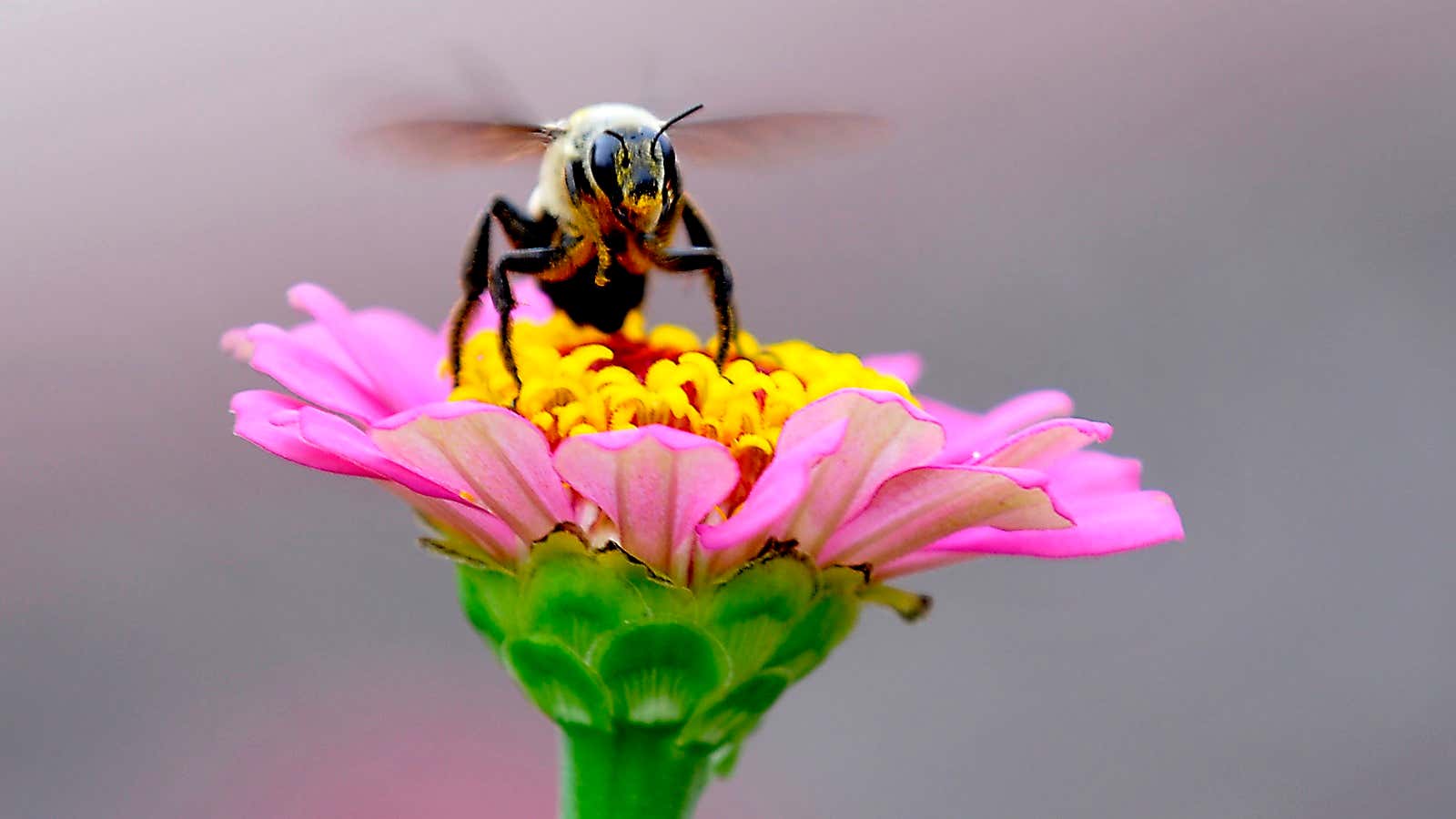Finally, some good news for the bees. The US government today said it is restricting the use of some neonicotinoids—a type of agricultural pesticide implicated in the mass die-off of honey bees, which has raised fears about the future of the food supply in the US and Europe.
The US Environmental Protection Agency (EPA) will require the use of a warning label on four neonicotinoids—imidacloprid, dinotefuran, clothianidin and thiamethoxam—that prohibits their use when bees and other pollinators are present.
The move follows the European Union’s ban in April on the use of neonicotinoids for two years, as well as a spate of studies that link the interaction of numerous pesticides and fungicides to bee deaths. Over the past six years, 10 million beehives worth $2 billion in the US have been lost to Colony Collapse Disorder, an affliction that leads to the sudden death of all bees in a hive. Bees pollinate $30 billion worth of crops in the US—one-third of an American’s diet—and the decline in bee populations has raised fears that the country is one bad winter away from the inability to pollinate almonds, blueberries and other fruits and vegetables.
But the restriction on these four substances won’t be a panacea. As we recently reported, a study found that pollen collected by bees on the east coast of the US was contaminated by as many as 21 different pesticides, eight of which lowered bees’ resistance to disease-carrying parasites.
Another study released yesterday found that supposedly bee-friendly plants sold in nurseries across the country were contaminated with the same neonicotinoids the EPA prohibited today. EPA spokesman Dale Kemery told Quartz the new prohibitions would not be applied to nursery plants.
“While this is a step in the right direction, it falls far short of what is needed to protect bees and other pollinators from pesticides that a growing body of evidence show are harming and killing them,” Lisa Archer, the director of the food program for Friends of the Earth, told Quartz in an email, adding that the restrictions should include nursery plants.
